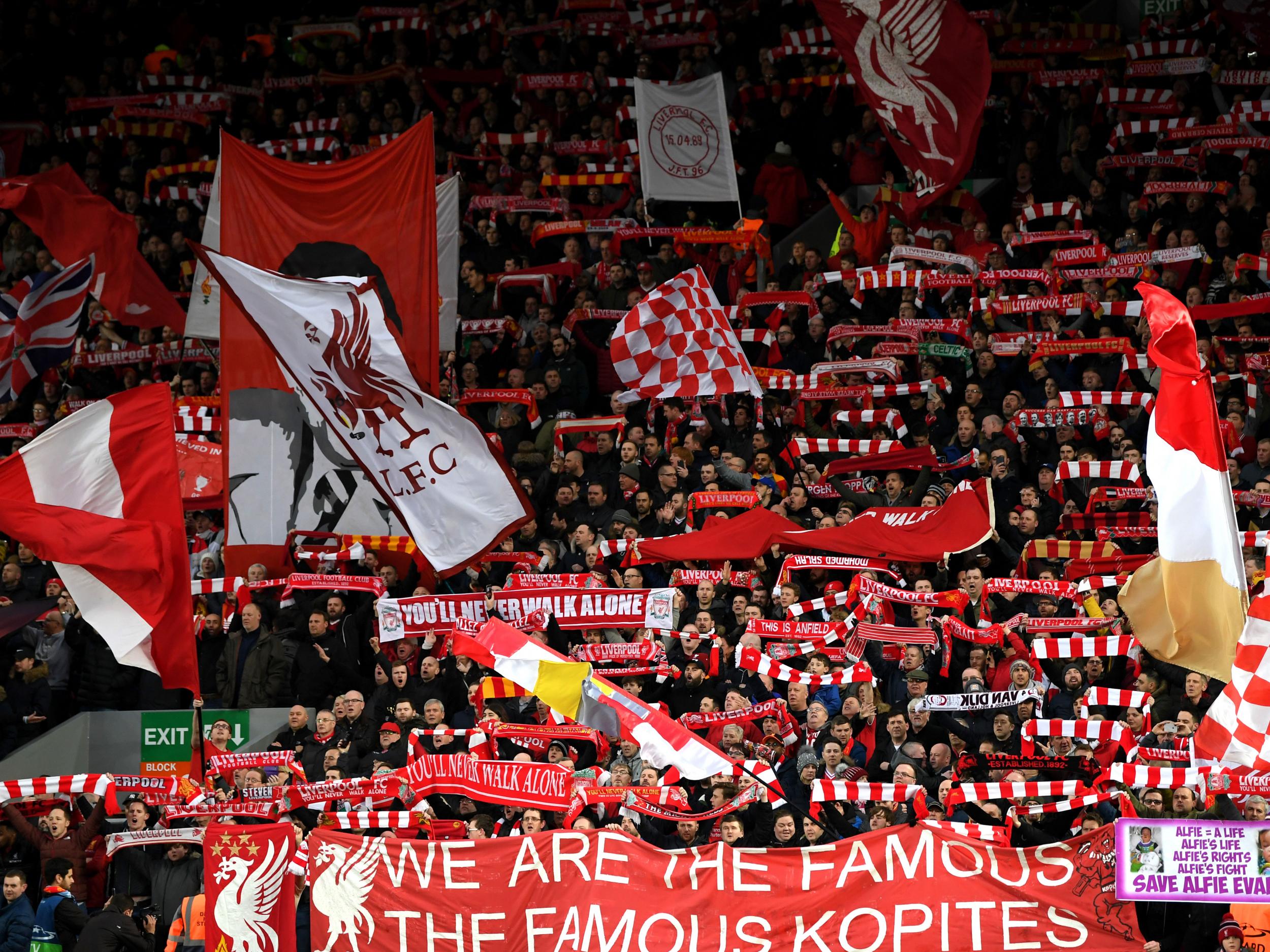Fortnite: Football is losing fans to video games fears Liverpool CEO
Supporting a football club was traditionally a family affair, passed from parent to child but technology and social media are, literally, changing the game

Your support helps us to tell the story
From reproductive rights to climate change to Big Tech, The Independent is on the ground when the story is developing. Whether it's investigating the financials of Elon Musk's pro-Trump PAC or producing our latest documentary, 'The A Word', which shines a light on the American women fighting for reproductive rights, we know how important it is to parse out the facts from the messaging.
At such a critical moment in US history, we need reporters on the ground. Your donation allows us to keep sending journalists to speak to both sides of the story.
The Independent is trusted by Americans across the entire political spectrum. And unlike many other quality news outlets, we choose not to lock Americans out of our reporting and analysis with paywalls. We believe quality journalism should be available to everyone, paid for by those who can afford it.
Your support makes all the difference.Manchester United may be Liverpool's biggest rivals on the pitch, but when it comes to attracting a new breed of young fans, the competition comes equally from video games like Fortnite, the club's CEO Peter Moore has revealed.
Supporting a football club was traditionally a family affair, passed from parent to child, guaranteeing clubs a steady stream of new fans through the turnstiles as generations passed.
Yet technology and social media have consigned the notion of family allegiance to soccer's romantic past, according to Moore, forcing clubs to look elsewhere for new supporters.
Today a fan could live in Liverpool but might just be a Real Madrid supporter or even a fan of the National Hockey League's Toronto Maple Leafs, ensconced in their bedrooms and connected through online streaming and gaming, esports and Twitter.
"The next generation (of fans) is going to be playing Fortnite, or Apex Legends and is he even going to get out of his bedroom? That is the challenge we face," Moore said as he prepared to give the keynote speech at the SXSW conference in Austin, Texas.
"The only way to meet that challenge is go get them. I am loathe to say go into the bedroom and find them but you have to. You've got to talk to them like they are used to being spoken to."
After 10 years as head of EA Sports and before that vice-president of Microsoft's interactive entertainment business, Moore speaks the language of gamers and today's young fan.
It was that which convinced the Merseyside club's American owners, Fenway Sports Group, to hire the Liverpool-born Moore, making him responsible for all business, commercial and operational areas.
In his two years in charge he has revamped their fan engagement strategy, utilising technology and data to better understand supporters and personalise the way the they interact with them.
"The ability for me to bring my experience, particularly in the last 20 years being in tech, has allowed me to bring that to bear against the needs and challenges of what traditional sports need to do to embrace this new generation," explained Moore. "A lot of gamers are coming through who are expecting the gaming experience.
"They don't actually like to sit in the living room anymore or don't actually go to the game with their dads."
Moore's work on the business side has gone hand-in-hand with success on the pitch, with the club locked in a Premier League title battle with Manchester City having swept aside Bayern Munich on Wednesday to reach the Champions League quarter-finals.

Supporters are the life blood of any sporting club and success attracts more fans. More supporters means more revenue and more revenue means better players and more success.
Yet club loyalty and passion is now nurtured through technology and the challenge is how to attract and engage fans in a global marketplace where competition is cut-throat.
"My dad took me to Anfield in 1959, I was four years of age and I have bled Red ever since," said Moore. "But my son may be the last generation in the Moore family that organically became a Liverpool fan because of me.
"If they are not going to do that then we have to go get them and build platforms they find relatable and literally talk to them like we are a video game.
"It is not happening organically anymore, that rite of passage I think is finished with this generation."
Moore says there is a new tech-savvy generation of fans that are demanding a different experience.

Liverpool will add 360-degree cameras at Anfield to offer a view of the match that younger fans are used to seeing in video games like FIFA.
The club is also working with IBM on a multi-platform strategy and a new app in an effort to engage fans 24/7, says Moore.
"It is on me as a CEO of a global football club to think about new ways we can continue to engage them otherwise we are going to lose generation after generation," he said. "You either evolve or die."
Liverpool were eighth on Forbes' 2018 list of most valuable soccer clubs with a valuation of $1.94 billion. The list was topped by Manchester United worth $4.12 billion, followed by Real Madrid and Barcelona who were both valued at over $4 billion.
Liverpool can expect to see their stock to rise, however, having announced in February record pre-tax profit over the last financial year, amid continued success on the pitch and combined with an aggressive fan engagement philosophy.
"Sponsors, advertisers, companies that want to be associated with you will then come to you and write you a bigger cheque each year," explained Moore. "The cycle is: drive revenue, buy players, win games."
Reuters
Join our commenting forum
Join thought-provoking conversations, follow other Independent readers and see their replies
Comments